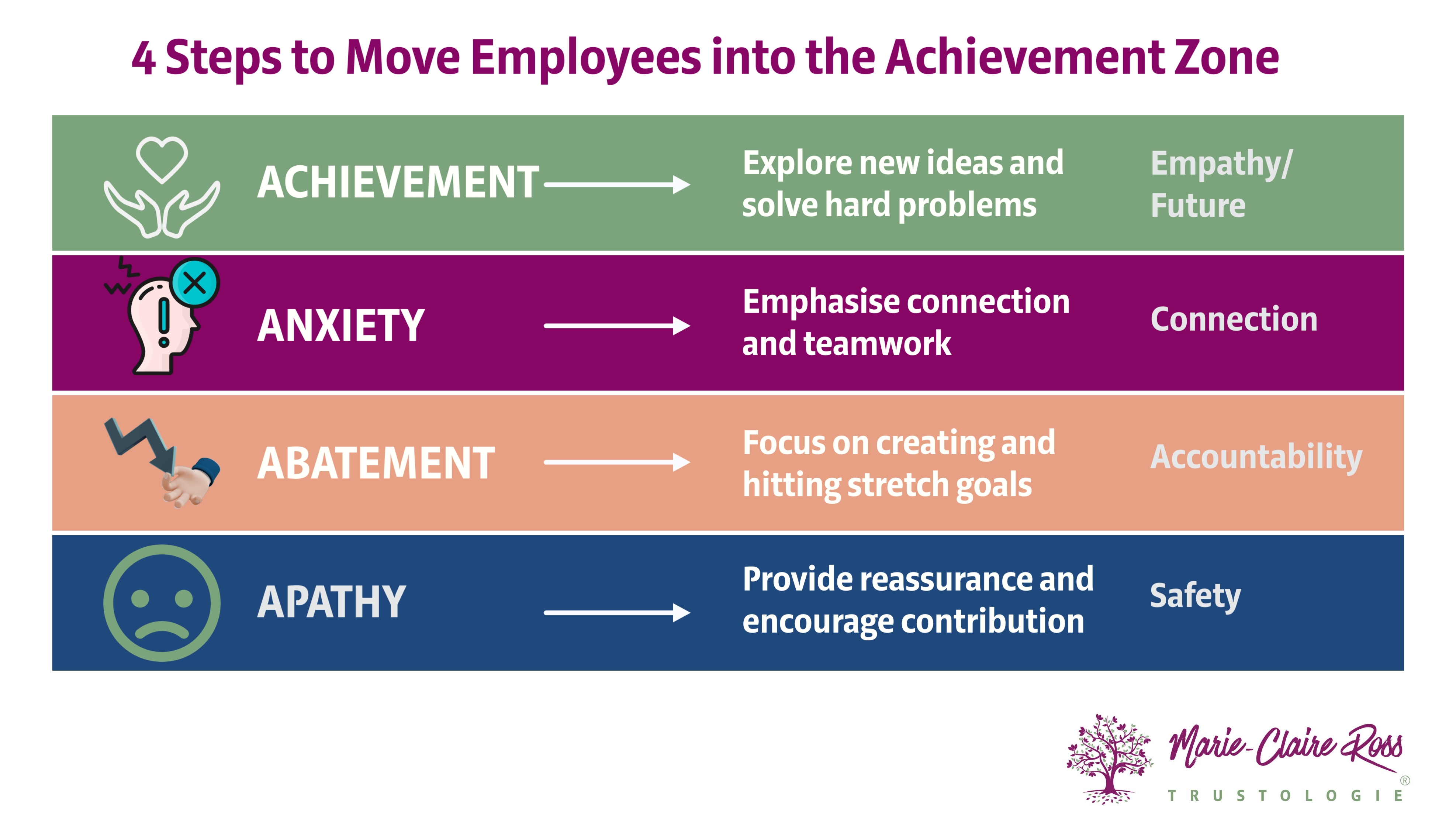11 min read
4 Practical Strategies for Better Emotional Management in the Workplace
I have a friend who often finds herself at the mercy of her emotions. Recently, she called me to rehash a confrontation she’d had with a group of...
Develop leaders, strengthen executive teams and gain deep insights with assessments designed to accelerate trust and performance.

Transform how your leaders think and perform with keynotes that spark connection, trust and high-performance cultures.

Explore practical tools, thought-leadership and resources to help you build trusted, high-performing teams.

Trustologie® is a leadership development consultancy founded by Marie-Claire Ross, specialising in helping executives and managers build high-trust, high-performing teams.


Have you ever had a conversation with a boss and their reaction or language changed how you felt about them in that moment?
In marketing, a moment of truth is any opportunity a customer (or potential customer) has to form an impression about a company, brand, product or service. Marketers use moments of truth to create positive, customer-centric outcomes.
But it's not just when customers interact with our brand - moments of truth also occur when employees interact with their leaders.
During my qualitative research within organisations, I have come across six stand-out moments of truth, when a leader is seen as someone employees can trust. These are pivotal moments that effectively bring out employees who might be hiding in their shell to step forward and bring their full commitment to their work. It's the moment when a boss literally took their breath away (but in a good, non-romantic kind of way) signalling that they are a person of high character.
These positive interactions indicate to employees that their leader supports them and will be there for them.
I believe that leaders need to authentically create these critical moments to foster healthy and productive team cultures - an environment where employees are trusted to thrive.
The six moments of truth for leadership interactions are:
1. When your employees make a mistake
One of the defining moments in a working relationship is the first time a leader reacts to an employee's mistake. If there is cynicism, anger, frustration or even a hint of a dirty look, it sets up the foundations for a rocky working relationship.
Leaders who regard problems as an opportunity to learn, empower their direct reports to continue to share their mistakes, but to also be open to learning from them. Being able to do this consistently is no easy feat - but it will go a long to building strong relationships with your direct reports.
2. When you visit an employee at their place of work

11 min read
I have a friend who often finds herself at the mercy of her emotions. Recently, she called me to rehash a confrontation she’d had with a group of...

9 min read
True leadership presence isn’t a performance or a set of charisma hacks; it is the felt experience of who you are being in the room. By cultivating...

13 min read
As teams return from their summer (or winter) break, you may notice subtle shifts in your team’s energy. Even if the end of year was positive, a new...
-1.jpg)
As human beings we all know how wonderful it feels to be trusted by your leader. Being able to trust your boss and being trusted is always rated in...
.png)
Our brains are naturally wired to seek out certainty and a sense of safety.

If you do a search on LInkedIn for Trusted Leader, you'll find around 1 million people have the audacity to label themselves "Trusted Advisor,"...